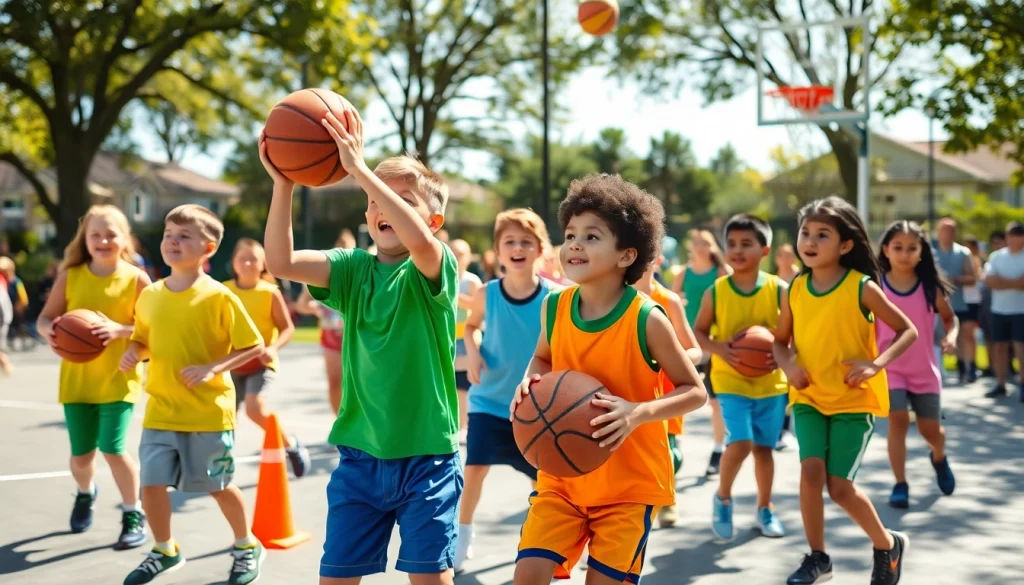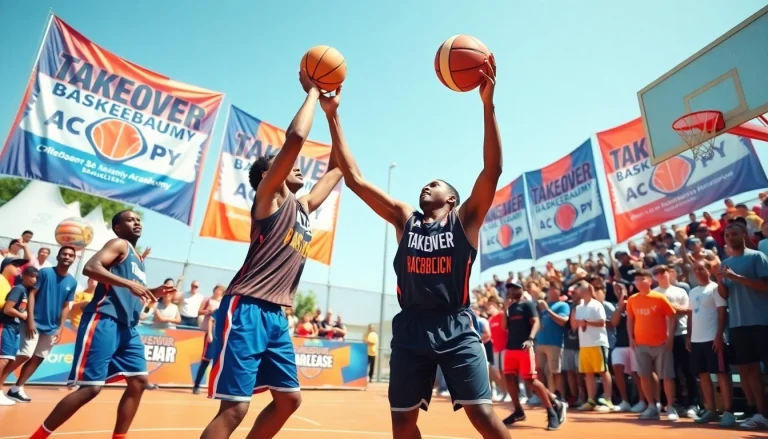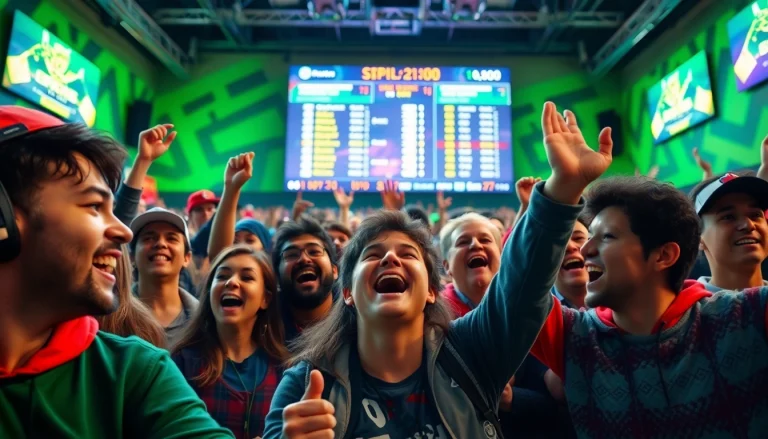
Understanding Young Basketball Enthusiasts
Basketball is more than just a sport; it is a platform for personal growth, teamwork, and building lasting friendships. For young basketball enthusiasts, the bond with the game can influence not just their athletic abilities but their confidence and life skills as well. Understanding who these young athletes are can help coaches, parents, and communities provide the right support and opportunities to help them thrive.
Defining the Young Basketball Demographic
Young basketball enthusiasts typically fall within the age range of 6 to 18 years. At this stage in their development, children and teenagers showcase a variety of interests, motivations, and physical capabilities. They engage with the sport through recreational leagues, school teams, and informal play in local neighborhoods. In the United States alone, millions of young athletes participate in organized basketball each year, contributing significantly not only to their athletic development but also to their social and cognitive growth.
Key Motivations for Participation
Understanding the motivations behind why young basketball enthusiasts engage in the sport can play a crucial role in nurturing their passion. Key motivations typically include:
- Fun and Friendship: Many young players join basketball teams to play with friends, form new relationships, and enjoy the camaraderie sports can offer.
- Skill Development: As they develop their skills, young athletes often seek to improve their shooting, dribbling, and teamwork abilities.
- Competition: The thrill of competition and the desire to win can be strong motivators for many young players.
- Role Models: Young enthusiasts often look up to professional players and emulate their skills, aspirations, and work ethic.
Identifying Skill Levels and Needs
Young basketball players display a wide range of skill levels that often correlate with their age, experience, and training. It is essential for coaches and parents to accurately assess these skill levels to tailor coaching methods and practice drills appropriately. The primary skill levels can be categorized into:
- Beginner: These players are often unfamiliar with the basic rules of the game. They need guidance on fundamental skills such as dribbling, passing, and shooting.
- Intermediate: Intermediate players possess a basic understanding of the game and have practiced fundamental skills. They need to focus on improving their techniques and strategic understanding.
- Advanced: Advanced players exhibit strong skills and awareness of gameplay. They require focused training on their weaknesses and strategies for enhancing their game comprehension and adaptability.
Essential Skills for Young Basketball Enthusiasts
To truly excel in basketball, young enthusiasts must develop essential skills that form the foundation of their game. These skills can set them on paths for success both on and off the court.
Fundamentals of Shooting and Dribbling
Shooting and dribbling are two of the most vital skills a basketball player must master. Typically, coaches emphasize:
- Proper Shooting Technique: Young players should focus on stance, hand placement, and follow-through. Using drills like “Spot Shooting” can help reinforce correct form.
- Dribbling Drills: Fun activities such as “Dribble Relay Races” can make practicing dribbling more engaging while helping players manage the ball under pressure.
Importance of Passing and Teamwork
Basketball is a team sport, and the ability to effectively pass the ball and work with teammates is essential. Key focuses for young athletes should include:
- Types of Passes: Teaching different types of passes like chest passes, bounce passes, and overhead passes can enhance their passing ability.
- Team Drills: Incorporating drills such as “Three-Man Weave” serves to improve passing, movement, and teamwork all at once.
Developing Defensive Techniques
Defense is a critical aspect of the game that often gets overshadowed by offensive skills. Young basketball enthusiasts should practice:
- Defensive Posture and Footwork: Teaching players to maintain a proper defensive stance and utilize quick foot movements aids in effective defense.
- 1-on-1 Defense Drills: These drills help players understand defensive principles and improve their man-to-man defense skills.
Engaging Young Basketball Enthusiasts
Engagement is vital for keeping young basketball enthusiasts motivated and passionate about the sport. This can be achieved through well-structured practices, innovative drills, and using technology.
Creating Fun and Competitive Drills
Incorporating fun and competitive elements into drills can elevate players’ enthusiasm for practicing:
- Obstacle Courses: Set up courses that incorporate dribbling, shooting, and passing challenges that can foster a competitive spirit.
- Time Challenges: Organizing friendly competitions, like timed shooting contests, can encourage players to improve their skills while having fun.
Incorporating Games and Challenges
Besides drills, adding various games ensures that young players remain engaged:
- Scrimmage Games: Mixing competitive scrimmages into practices allows players to apply learned skills in real-game situations.
- Skill Challenges: Host weekly skill challenges that reward creativity in executing drills or learning new techniques.
Utilizing Technology for Skill Development
Technology can provide valuable resources for training young basketball enthusiasts. Coaches should consider:
- Apps for Feedback: Use training apps that offer video analysis to help players review their form and technique.
- Online Resources: Introduce young enthusiasts to instructional videos that demonstrate various skills and drills.
Building Community for Young Players
A sense of community can significantly enhance the experience of young basketball enthusiasts. By fostering local connections and interactions between players, coaches, and families, basketball can extend beyond merely a sport.
Establishing Local Basketball Camps
Summer and holiday basketball camps can be excellent opportunities for young players to learn, socialize, and challenge themselves in a structured environment. Key benefits include:
- Focused Training: Camps typically feature specialized coaches who provide focused training on essential skills.
- Team Building: Participants can form new friendships and learn about teamwork in a fun, engaging environment.
Encouraging Parental Involvement
Parental support can have a significant impact on the experiences of young basketball enthusiasts. Parents can contribute to community building by:
- Volunteering: Parents can support local teams by helping organize events, serving as coaches, or assisting with logistics.
- Transportation and Attendance: Showing up for games and practices demonstrates a commitment to their child’s passion and builds community spirit.
Networking within Basketball Communities
Building a robust network among players and coaches can facilitate better skill development and motivation.
- Joining Local Leagues: Encourage young enthusiasts to join local leagues which can offer gameplay experience and community engagement.
- Connecting with Coaches: Young players should feel empowered to communicate with coaches for guidance, mentorship, and personal growth.
Tracking Progress and Setting Goals
For young basketball enthusiasts, tracking their progress and setting achievable goals can help maintain focus and encourage continuous improvement. Understanding how to measure development is key.
Measuring Skill Improvement
To determine if young players are improving, coaches and parents should implement methods to track progress, such as:
- Skill Assessments: Regularly assess key skills to monitor advancements in shooting, dribbling, and defense.
- Journals or Apps: Utilize skills journals or training apps to document training sessions, improvements, and areas for further development.
Setting Realistic Performance Goals
Goal-setting can provide direction and motivation for young athletes:
- SMART Goals: Encourage players to set Specific, Measurable, Achievable, Relevant, and Time-bound goals, such as improving shooting accuracy or mastering a new dribbling technique.
- Long-term Goals: Help them set long-term aspirations, such as making a school team or consistently practicing throughout the offseason.
Celebrating Achievements and Milestones
Recognizing achievements can boost confidence and reinforce a positive mindset. Celebrating milestones can include:
- Acknowledgment During Practices: Coaches should take time to highlight individual or team achievements, be it a skill learned or a significant game win.
- End-of-Season Awards: Host ceremonies that recognize player accomplishments, fostering a sense of pride and accomplishment among enthusiastic participants.
In conclusion, fostering a supportive environment for young basketball enthusiasts is crucial. By understanding their motivations, developing essential skills, creating engaging experiences, and building communities, we can help shape the next generation of basketball players who value teamwork, perseverance, and sportsmanship.






